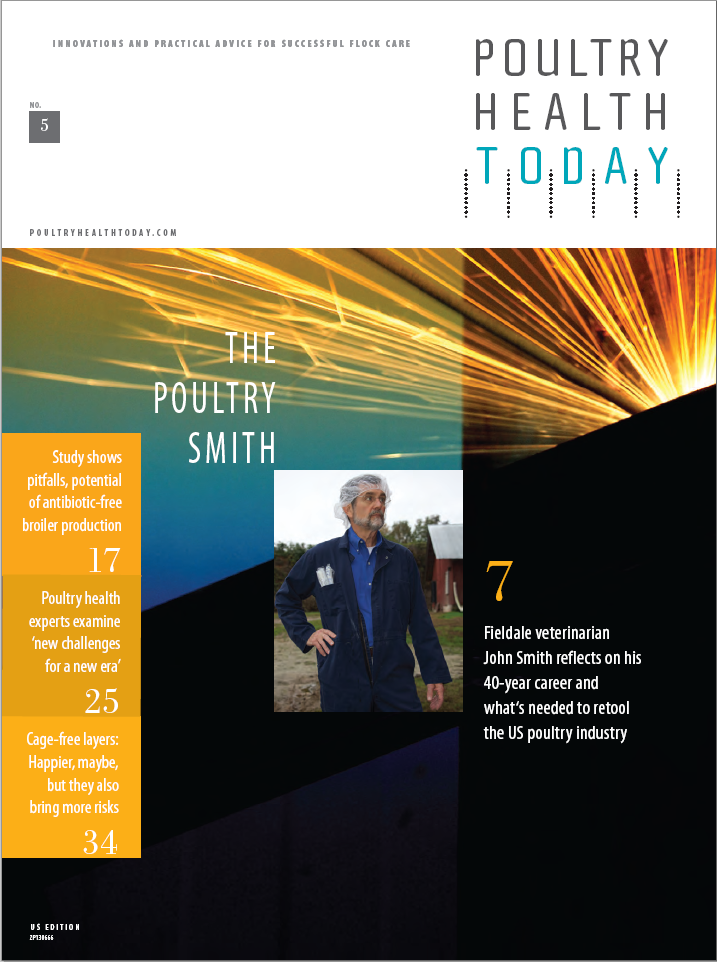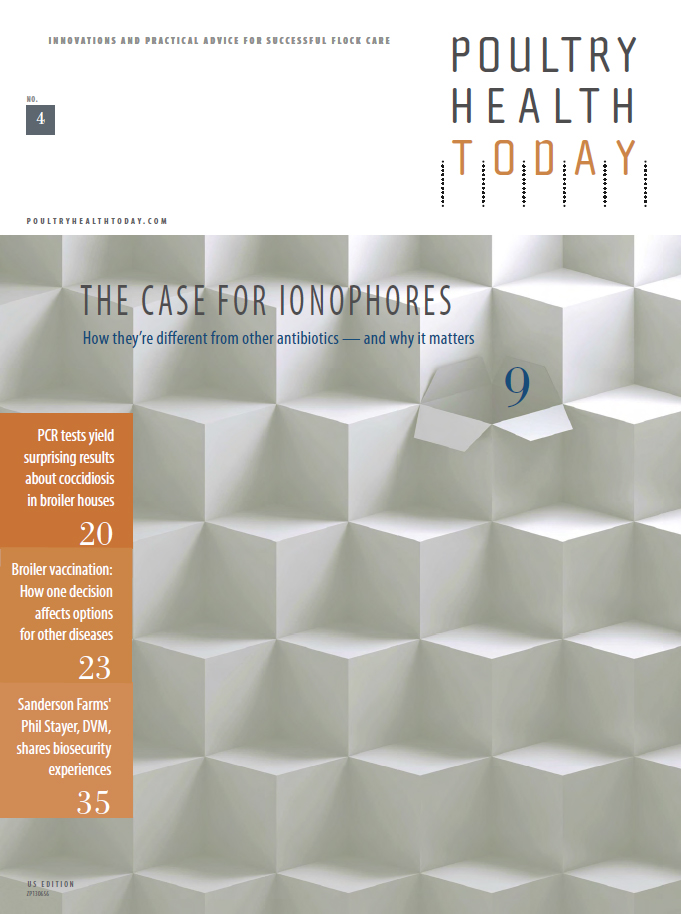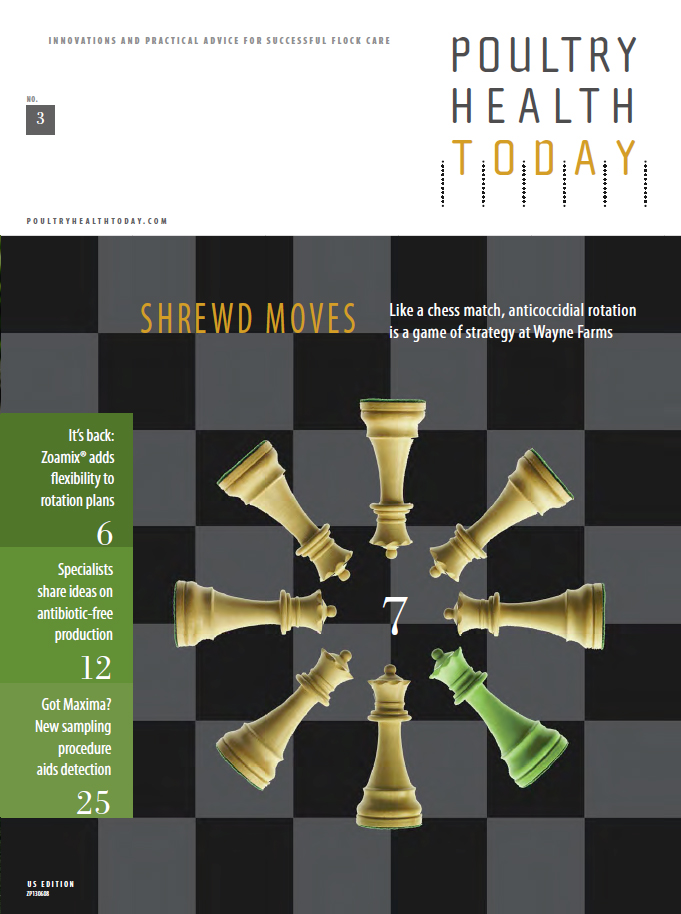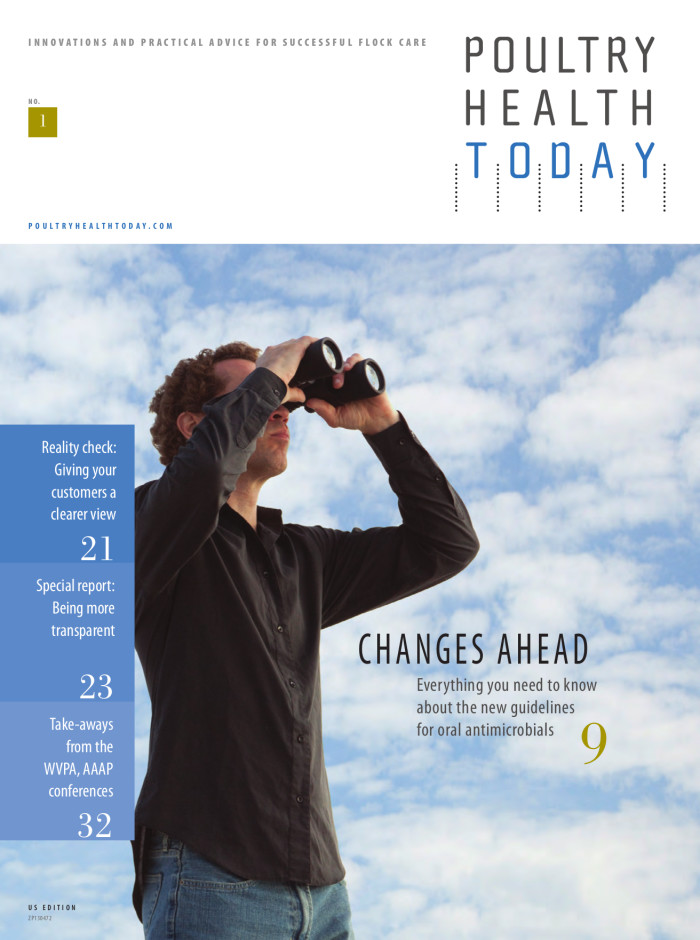

Poultry Health Today, Issue 4
Inside the Issue
THE CASE FOR IONOPHORES
Unlike other classes of antibiotics, ionophores are not considered important to human health by top public health and regulatory agencies.
Earlier this year, when McDonald’s USA announced it would require chicken suppliers to phase out antibiotics, the fast-food giant made one notable exception. It gave a pass to a class of antibiotics called ionophores - medications like monensin, salinomycin, lasalocid, to name a few. In this in-depth report, Poultry Health Today looks at the science behind ionophores, how they’re different from other antimicrobials and why it should matter to poultry marketers.
- The case for ionophores: How they’re different from other antibiotics - and why it matters
- Canada studies find no links between ionophores, resistance of other antibiotics
- Ionophores look different to other scientists, too
- Are ionophores antibiotics? That depends on whom you ask
- Are there practical alternatives to ionophores?
- Ionophores: The price of elimination
- Omitting ionophores raises ethical conflicts for veterinarians
Also in this issue

Special Report
- Pathways to protection: How one vaccine decision can affect options for managing other diseases in broilers
- Complex broiler-vaccine decisions require expert advice
- Shift and drift affect broiler vaccination decisions
- Broiler vaccines: More diseases, more decisions

Discoveries
- IBV study compares vaccine protocols for Cal-99 variant
- In ovo Marek’s vaccine yields benefits for breeders, layers

Expert Advice

Sound Science
- Alternative eggs not necessarily better quality
- Researchers evaluate significance of IBV shedding
- DDGS linked to necrotic enteritis, higher FCR
- Low-cost LEDs don’t hurt production
- High stocking density predisposes broilers to NE
- Hen housing systems compared in 3-year study

Diagnostics
- PCR reveals unexpected species of Eimeria in US broiler houses
- Gross coccidial lesion scores appear to predict microscores

The Last Word
More Issues













